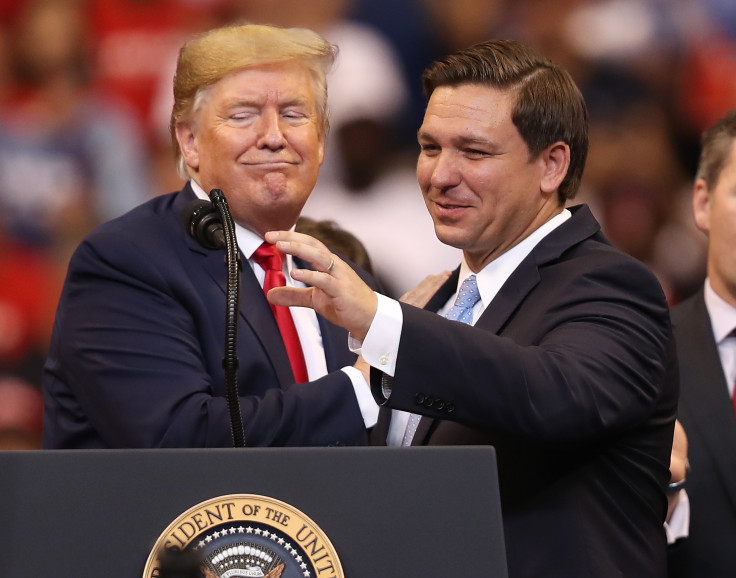
President Donald Trump's administration is reportedly considering adopting policies modeled on Florida's SB1718, a law signed by Florida Governor Ron DeSantis in 2023, which mandates businesses with 25 or more employees use the federal E-Verify system to confirm workers' legal status. DeSantis himself referred to the legislation as DeSantis "the strongest legislation against illegal immigration anywhere in the country."
The legislation imposed enforceable penalties for those employing undocumented immigrants, and enhanced penalties for human smuggling, while also prohibiting local governments from issuing Identification Cards (ID) to them, invalidated ID cards issued to them in other states, and required hospitals to collect and submit data on the costs of providing healthcare to them.
According to Americans for Immigrant Justice, "as soon as the law passed, undocumented immigrants and their families and communities were suddenly unsafe and unable to go about their daily lives," adding that "many fled from the state of Florida."
Besides generating fear around immigrant communities in the Sunshine State, the economic consequences of the measure were signaled right off the bat by organizations like the Florida Policy Institute which estimated that the E-Verify requirement alone could cost the state $12.6 billion in its first year.
The discussion around the financial aftermath of crackdowns on undocumented immigrants has now reached a national stage as Donald Trump has made mass deportations the backbone of his immigration policy, with critics anticipating the GDP being cut by as much as 6.8% due to labor shortages and cost of the operation around a whopping $200 billion in total.
Nevertheless, according to Forbes, the Trump administration is looking at Florida's SB1718 as a possible roadmap, especially considering the President-elect has drawn heavily from Florida to fill key positions in his administration, including appointing Marco Rubio, Susie Wiles and Matt Gaetz, who withdrew his candidacy amid mounting pressure around his sexual misconduct accusations.
"The Florida-heavy lineup has even led Trump ally Roger Stone to wonder aloud if Trump is aiming to fulfill the campaign pledge of his former Republican primary rival, Florida Governor Ron DeSantis, to "Make America Florida," said Forbes.
So how exactly could Florida set the blueprint for economic prosperity amid a nationwide crackdown on undocumented immigrants?
Proponents argue that SB1718 has bolstered Florida's economic growth while maintaining robust enforcement of immigration laws. According to the Bureau of Economic Analysis, Florida's GDP grew by 9.2% in 2023, the fastest rate in the nation. Advocates highlight that the law exempts most small businesses, focusing only on larger employers and new hires. They contend that this structure has minimized economic disruptions while ensuring compliance, according to Forbes.
However, critics, particularly in immigrant-laden industries like agriculture, construction, and hospitality, describe a different reality. Many businesses report severe labor shortages as workers—undocumented and otherwise—left the state out of fear, as NPR recently reported on the one-year anniversary of the legislation.
Farmers and other employers also highlight challenges with the federal H-2A and H-2B visa programs, which provide legal avenues to hire foreign workers, as reported by the Washington Examiner. While usage of these programs has grown, employers describe them as costly and bureaucratically cumbersome.
Labor shortages are affecting construction and tourism, key pillars of Florida's economy. Businesses report difficulty in filling positions, from roofers to restaurant staff, which some fear could hinder disaster recovery and growth in a state prone to hurricanes.
The debate reflects a larger national issue that is poised to dominate the political landscape in the months to come: balancing the enforcement of immigration laws with the economic realities of an aging workforce and labor-intensive industries.
© 2024 Latin Times. All rights reserved. Do not reproduce without permission.












